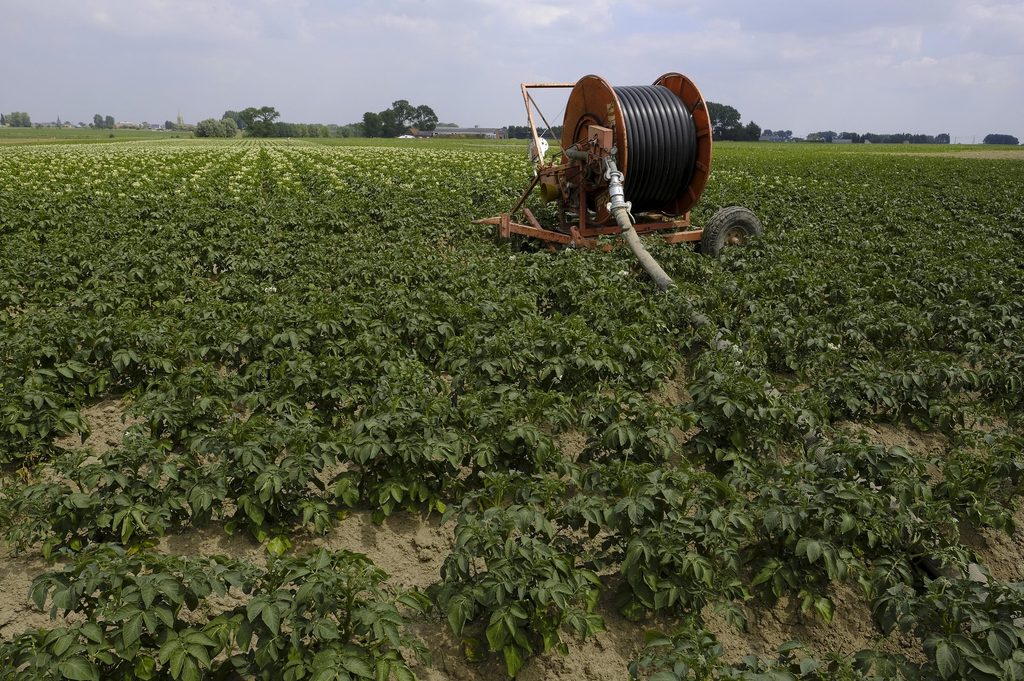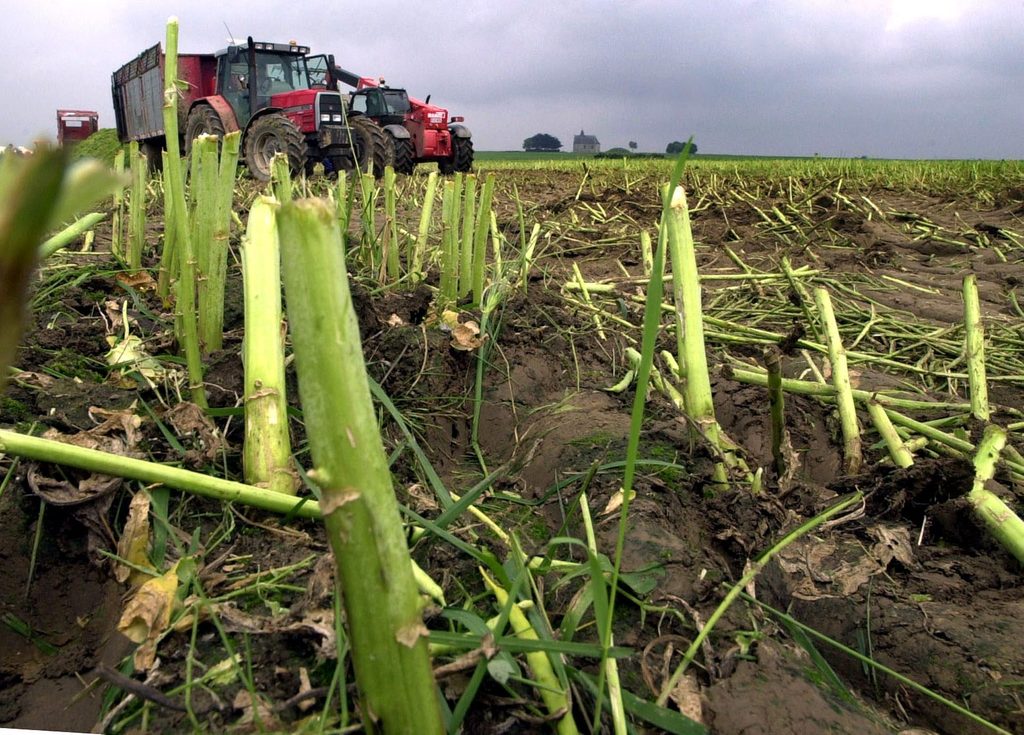With extreme heat becoming a fixture of Europe's summers, the continent's food supply is becoming chronically hampered by the worsening drought. Food companies are left struggling in the face of shrinking crops and rising prices, De Tijd reports.
In the past seven years, producers and farmers have seen vegetables dry in the fields at an unprecedented pace. In Flanders, experts are trying to solve this with drought-resistant crops or better water collection.
"We need 20% more land than previously to harvest the same amount of food," Gabrielle Kalkwijk, CEO of frozen vegetable company Ardo told De Tijd.
Kalkwijk explained that different crops are facing difficulties. The spring spinach harvest, for example, is 20% smaller. For summer cauliflower and onions, the harvests are over 15% smaller. With the peas harvest in full swing at the moment, the loss is already over 10%, the Ardo CEO shared.

An irrigation system on a potato field as the weather continues to be hot and dry in Belgium, June 2017. Credit: Belga
Crop failures have repercussions throughout the food supply system. Not only do they drive up prices, but they also lead to shortages. "If this drought continues, it will eventually lead to empty shelves in shops," the Ardo CEO told De Tijd.
Global food security is severely threatened by the increasing concentration of greenhouse gasses in the atmosphere, a recent report found. While European crops are hurt by extreme heat and drought, crop failures will increase in all food-producing regions of the world, creating a chain reaction.
Simultaneous poor harvests around the world are underestimated at the moment, but could create shortages, price hikes and even civil unrest, the report from German and American scientists found.
Scrambling for solutions
One solution in the face of drought and extreme heat could be adapting the seeds for the new climate conditions. The Flemish Institute of Biotechnology (VIB) is developing drought-resistant agricultural crops, with varieties of maize and soybeans, which they hope to see planted on a large scale by 2030.
The seeds they are developing are more efficient at absorbing water, but would not solve the problem entirely. "No crop can tolerate 40-degree temperatures for weeks at a time," Dirk Inzé, VIB expert told De Tijd.
In Belgium, last year's drought reached disastrous levels, draining the groundwater and slashing harvest yields. Better water management can improve the region's ability to deal with such extreme events.
Today, 30% of rainwater immediately washes away, according to De Tijd. This surface runoff could make a difference during the dry months.
Related News
- Next steps for Brussels 'ambitious' flood and drought plan
- Belgium unable to find consensus on climate plan due to Flemish opposition
- Europe warming twice as quickly as other continents, UN report shows
The Flemish Insitute for Agricultural, Fisheries and Food Research (ILVO) is considering how to better collect rainwater. Besides increasing the number of water basins, the institute highlights the need to improve the country's waterways. This would include giving more space to rivers for meandering and creating floodplains.
A healthier soil could retain more water for crops. The practice of regenerative agriculture could improve soil health. This type of agriculture relies less on ploughing and fertilisers and lowers dependence on monocultures.

